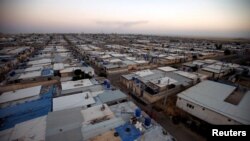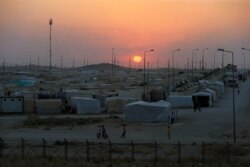More than 1 million Iraqis who fled from Islamic State and are now living in overcrowded and filthy camps are “extremely vulnerable” to COVID-19, Doctors Without Borders (MSF) said.
"In the camps where MSF provides medical care, families are congested inside single tents and have scarce access to adequate hygiene facilities," said Tetyana Pylypenko, MSF medical coordinator in Iraq. "Mixing with other camp residents is an unavoidable daily task, and without enough aid, people have no choice but to go out and seek any work to support their families, despite knowing the increased risk of infection."
MSF says while there have been some confirmed coronavirus cases inside the camps where the group is active, those who leave the camps to take outside jobs risk bringing back the virus. The group says it is very difficult for the refugees to protect themselves from a possible large outbreak.
Health officials have said people with other health conditions, such as diabetes, hypertension, and heart disease, are especially vulnerable to COVID-19.
"It's critical that people in the camps have access to care for COVID-19 and to regular health services," MSF said. "For MSF to continue to work across the country and adequately respond to the health needs, access and movement have to remain open."
According to the United Nations, 3 million Iraqis fled Islamic State from 2014 until Iraq defeated the terrorist group about two years ago.
About 1.3 million Iraqi refugees are living in displaced persons camps inside Iraq, hoping for some way to resume their normal lives.









